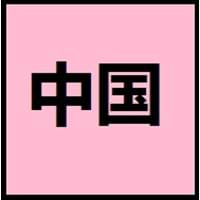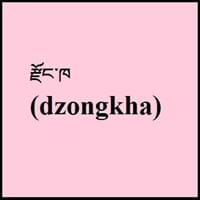Chinese vs Dzongkha
Countries
China, Hong Kong, Macau, Singapore, Taiwan
Bhutan
National Language
China, Taiwan
Bhutan
Second Language
Republic of Brazil
India
Speaking Continents
Asia
Asia
Minority Language
Indonesia, Malaysia
India
Regulated By
Chinese Language Standardization Council, National Commission on Language and Script Work, Promote Mandarin Council
Dzongkha Development Commission
Interesting Facts
- Chinese language is tonal, since meaning of a word changes according to its tone.
- In Chinese language, there is no grammatical distinction between singular or plural, no declination of verbs according to tense, mood and aspect.
- Standard romanization of the Dzongkha language is Roman Dzongkha.
Similar To
Not Available
Sikkimese Language
Derived From
Not Available
Tibetan Language
Alphabets in
Chinese.jpg#200
Dzongkha-Alphabets.jpg#200
Scripts
Chinese Characters and derivatives
Dzongkha Braille, Tibetan Braille
Writing Direction
Left-To-Right, Horizontal, Top-To-Bottom
Not Available
Language Levels
Not Available
Time Taken to Learn
Not Available
Hello
您好 (Nín hǎo)
Kuzoozangpo La
Thank You
谢谢 (Xièxiè)
Kaadinchhey La
How Are You?
你好吗? (Nǐ hǎo ma?)
Ga Day Bay Zhu Yoe Ga ?
Good Night
晚安 (Wǎn'ān)
lek shom ay zim
Good Evening
晚上好 (Wǎnshàng hǎo)
Not Available
Good Afternoon
下午好 (Xiàwǔ hǎo)
Not Available
Good Morning
早安 (Zǎo ān)
Not Available
Please
请 (Qǐng)
Not Available
Sorry
遗憾 (Yíhàn)
Tsip maza
Bye
再见 (Zàijiàn)
Log Jay Gay
I Love You
我爱你 (Wǒ ài nǐ)
Nga cheu lu ga
Excuse Me
劳驾 (Láojià)
Tsip maza
Where They Speak
China, Malaysia, Singapore, Taiwan
Bhutan
Where They Speak
China, United States of America
Bhutan
Where They Speak
China, Malaysia, Singapore, Vietnam
Bhutan
How Many People Speak
Not Available
Total No. Of Dialects
Not Available
Speaking Population
Not Available
Native Name
中文 (zhōngwén)
རྫོང་ཁ (dzongkha)
Alternative Names
Not Available
Bhotia of Bhutan, Bhotia of Dukpa, Bhutanese, Drukha, Drukke, Dukpa, Jonkha, Rdzongkha, Zongkhar
French Name
chinois
dzongkha
German Name
Chinesisch
Dzongkha
Pronunciation
Not Available
Not available
Ethnicity
Han
Ngalop people
Origin
1250 BC
17th Century
Language Family
Sino-Tibetan Family
Sino-Tibetan Family
Subgroup
Not Available
Not Available
Branch
Not Available
Tibeto-Burman
Early Forms
No early forms
No early forms
Standard Forms
Standard Chinese
Dzongkha
Language Position
Not Available
Signed Forms
Wenfa Shouyu 文法手語 ("Grammatical Sign Language", Signed Mandarin (Taiwan))
Not Available
Scope
Individual
Individual
ISO 639 6
Not Available
Not Available
Glottocode
sini1245
nucl1307
Linguasphere
79-AAA
No data Available
Language Type
Living
Living
Language Linguistic Typology
Subject-Verb-Object
Not Available
Language Morphological Typology
Analytic, Isolating
Not Available
Chinese and Dzongkha Language History
Comparison of Chinese vs Dzongkha language history gives us differences between origin of Chinese and Dzongkha language. History of Chinese language states that this language originated in 1250 BC whereas history of Dzongkha language states that this language originated in 17th Century. Family of the language also forms a part of history of that language. More on language families of these languages can be found out on Chinese and Dzongkha Language History.
Chinese and Dzongkha Greetings
People around the world use different languages to interact with each other. Even if we cannot communicate fluently in any language, it will always be beneficial to know about some of the common greetings or phrases from that language. This is where Chinese and Dzongkha greetings helps you to understand basic phrases in Chinese and Dzongkha language. Chinese word for "Hello" is 您好 (Nín hǎo) or Dzongkha word for "Thank You" is Kaadinchhey La. Find more of such common Chinese Greetings and Dzongkha Greetings. These greetings will help you to be more confident when conversing with natives that speak these languages.
Chinese vs Dzongkha Difficulty
The Chinese vs Dzongkha difficulty level basically depends on the number of Chinese Alphabets and Dzongkha Alphabets. Also the number of vowels and consonants in the language plays an important role in deciding the difficulty level of that language. The important points to be considered when we compare Chinese and Dzongkha are the origin, speaking countries, language family, different greetings, speaking population of these languages. Want to know in Chinese and Dzongkha, which language is harder to learn? Time required to learn Chinese is 88 weeks while to learn Dzongkha time required is Not Available.





